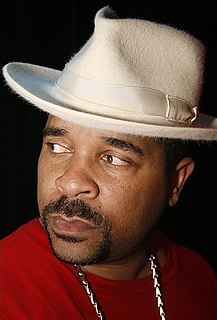A Quote by Sam Hunt
I like disagreement because it forces both sides to question their own opinions and why they feel that way.
Related Quotes
The song writing is different because with this stuff, I write it on my own and with Hot Water, we're more of a collective and I love both sides of that. Honestly, it's two different animals but I love and respect them both and feel really honored to be blessed with people who care about it and come out and support both sides of it.
Right now, where do we stand? Well right at the Russian border, both sides have been taking provocative actions, both sides are building up military forces. NATO forces are carrying out maneuvers hundreds of yards from the Russian border, the Russian jets are buzzing American jets. Anything could blow up in a minute.
I follow politics in a big way, and always have since I was a kid. I've got opinions, but they're opinions on both sides - not just anti-Republican, which is a real popular thing for a rap artist to do. If you dis Republicans, nobody will get mad. I think the two-party system sucks. It's absolutely ignorant.
In writing a novel, the writer must be able to identify emotionally and intellectually with two or three or four contradicting perspectives and give each of them very a convincing voice. It's like playing tennis with yourself and you have to be on both sides of the yard. You have to be on both sides, or all sides if there are more than two sides.
When I decided to write about my brother and friends, I was attempting to answer the question why. Why did they all die like that? Why so many of them? Why so close together? Why were they all so young? Why, especially, in the kinds of places where we are from? Why would they all die back to back to back to back? I feel like I was writing my way towards an answer in the memoir.
The comrades throughout the Party must take all this fully into account and be prepared to overcome all difficulties with an indomitable will and in a planned way. The reactionary forces and we both have difficulties. But the difficulties of the reactionary forces are insurmountable because they are forces on the verge of death and have no future. Our difficulties can be overcome because we are new and rising forces and have a bright future.
I think being self-taught is the only way of really learning things, because you have to question everybody. You don't simply absorb axioms or so-called truths like they are rules. You have to test them, and you need to reflect on them, to consider the effect they create. So, you have very significant opinions about things, because they come out from your own reflections.
When I feel like work and life are both going well, I feel like I can be fully present at both. I think the reminder to me is that both are super important, and I need to be able to feel like I can experience both in the way that makes me happiest. If I'm not happy in one or the other, it really affects the other side.
I think the Bhagavad Gita is about both the forces of light and the forces of darkness that exist within our own self, within our own soul; that our deepest nature is one of ambiguity. We have evolutionary forces there - forces of creativity, and love, and compassion, and understanding. But we also have darkness inside us - the diabolical forces of separation, fear and delusion. And in most of our lives, there is a battle going on within ourselves.
Disagreement produces debate but dissent produces dissension. Dissent (which come from the Latin, dis and sentire) means originally to feel apart from others. People who disagree have an argument, but people who dissent have a quarrel. People may disagree and both may count themselves in the majority. But a person who dissents is by definition in a minority. A liberal society thrives on disagreement but is killed by dissension. Disagreement is the life blood of democracy, dissension is its cancer.




































